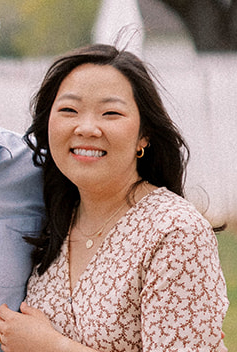Sarah Kim
M.A.Ed. - Curriculum & Instruction - Literacy Leadership

Education
- 2026, William & Mary, M.A.Ed. in Literacy Leadership
- 2016, University of Virginia, M.T. in Elementary Education
- 2015, University of Virginia, B.A. in Religious Studies
What kind of educational and professional experiences did you have prior to beginning this degree?
In 2016, I completed a Masters of Teaching at UVA in Elementary Education, which provided a robust student teaching internship, amongst many other formative experiences. For the last 8 years, I taught K, 1st, 3rd, and 5th grades - in 2 districts, in a Title 1 school, and in a Spanish-English dual language program. My experiences were diverse and largely defined by witnessing students’ literacy development K-5. Soon, I am stepping into a new role, supporting classroom teachers with literacy curriculum and instruction.
Why did you choose this field, and what motivates you in this work?
Learning has always been the heartbeat of my life. As a child, my school and education were safe, hopeful places. As an educator, I believe literacy is a fundamental human right. To me, this means all human beings should have access to learning how to read, write and communicate in a language. Presently, I am awake to our nation’s literacy crisis, which stokes my passion and commitment to progress in this field. For further discussion on how literacy intersects with other statistics and globally, check out UNESCO’s website! My colleagues’ and professors’ work continue to inspire me as well.
What do you hope to be doing after graduation? In 10 or 15 years?
Honestly, I hope to be doing what I’m doing now: trying to impact the literacy progress of our students. Along the way, I hope I read tons of research, continue my education, support practitioners, hone my practice and teach MANY students how to read.
What has been the most influential experience you've had so far in your program?
One of my favorite experiences in this program was the progression of assignments from the beginning of the program to the practicum: diagnosing reading difficulties, creating an assessment log, designing interventions, implementing those interventions and communicating results to families. If you told me a year ago that I would accomplish these things…I would not have believed you! Exemplars, rubrics, models and feedback provided crucial scaffolding.
Is there any additional information you would want a prospective student to know about the School of Education and its degree programs?
The Reading Specialist certificate and Literacy Leadership program will impart relevant knowledge and skills to be applied in collaboration with other practitioners and stakeholders of education. It will enrich one’s understanding of literacy research, curriculum, and instruction and equip one to communicate ideas to other practitioners. I would highly recommend this program to any literacy educator interested in challenging and improving their practice!